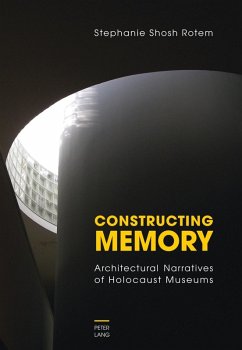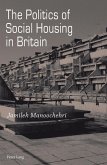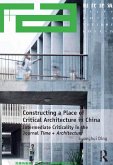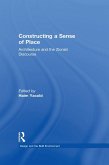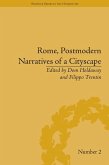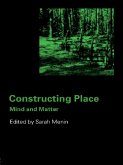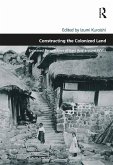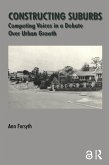This book reveals the critical role of architecture in the assimilation of the ideologies and values conveyed at Holocaust museums around the world. Through the architectural analysis of sixteen museums, social, cultural and political agendas will be unfolded.
While the distance in time and place raises the need to create innovative forms of display to reach an audience removed from the Holocaust, the degree to which this can be done by the museums' exhibits alone is limited. This book shows that architecture, as an abstract form of expression, plays a major role in the conception of Holocaust museums. By conveying values that cannot otherwise be expressed, the museums' architecture becomes integral to its narrative and, through it, to the construction of collective memories of the Holocaust.
While the distance in time and place raises the need to create innovative forms of display to reach an audience removed from the Holocaust, the degree to which this can be done by the museums' exhibits alone is limited. This book shows that architecture, as an abstract form of expression, plays a major role in the conception of Holocaust museums. By conveying values that cannot otherwise be expressed, the museums' architecture becomes integral to its narrative and, through it, to the construction of collective memories of the Holocaust.
Dieser Download kann aus rechtlichen Gründen nur mit Rechnungsadresse in A, B, BG, CY, CZ, D, DK, EW, E, FIN, F, GR, HR, H, IRL, I, LT, L, LR, M, NL, PL, P, R, S, SLO, SK ausgeliefert werden.
"Stephanie Rotem's insightful and thoroughly-researched compendium illustrates the wide spectrum of approaches through which the Holocaust is presented in museums around the world. Notwithstanding each institution's distinct qualities - whether through architectural design, location, or the host society's particular connection to this history - Rotem illuminates the common threads that link the earliest Holocaust exhibitions to those newly opened, as well as to those now being planned. How best to honor memory and ensure the continued relevance of these lessons for future generations becomes the central thesis of this seminal work. This compelling narrative should be essential reading for anyone interested in gaining a fuller understanding of this ongoing challenge, particularly when navigated against the backdrop of contemporary and often competing political currents. Rotem's thoughtful and incisive analysis is a welcome addition to the family of Holocaust scholarship." (RichardS. Hirschhaut, Executive Director, Illinois Holocaust Museum and Education Center, Skokie, IL)

